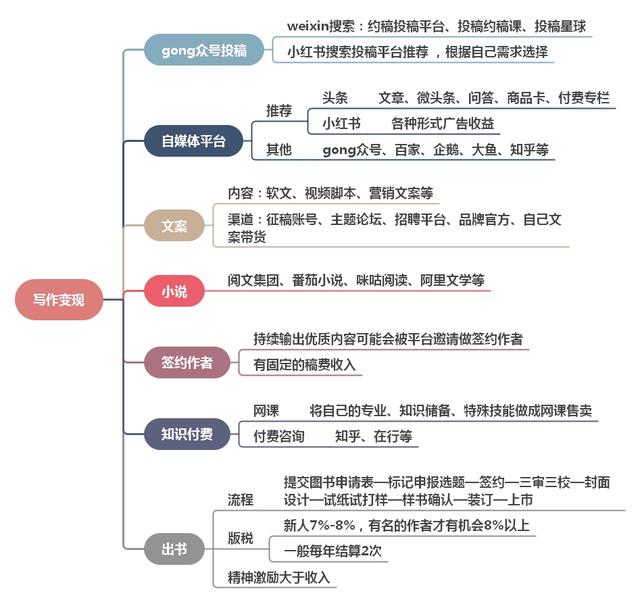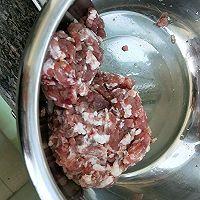㈠Let's Go fishing!
让我们去钓鱼吧!
1.Jamie was ten years old, but he did not have a hobby. He used to say that he was too busy or too
young to have a hobby.? He did not take part in any games with his friends. Instead, he watched a
lot of television and played too many computer games. He didn't want to do anything else.
杰来十岁了,但是他没有爱好。他过去经常说他太忙或大年轻而没有爱好。他不和他的朋友一起参加活动。相反,他看了很多的电视而且玩了太多的电脑游戏。他不想做其他的事情。
1.1used to过去经常做的事情(但是现在已经不做了)。这里的to是不定式,因此后面要跟动词原形用法:used to do
I used to play with my friends after school.过去放学后我常常和朋友们一起玩。
否定:used not to
I used not to play with my friends afterschool.过去放学后我不会常常和朋友一起玩。
要注意的是,由于used to表示过去的某个常做的事情,因此句子中是不会加入次数(例如:three times),和时间段(例如:five years,two month)。
1.2too...to...
1.2.1.基本结构及其含义:“too……to……,太……而不能……”。too是副词,“太”,后面接形容词或副词,to是动词不定式符号,后面接动词原形。
Tom is too young to go to school.汤姆年龄太小,还不能上学。/汤姆还没到上学的年龄。
The soup is too salty to eat.汤太咸了,没法喝。
1.2.2.如果表达“对某人来说太………而不能………,太……(以至于某人)不能做某事”,就要在不定式之前加上它的逻辑主语“for sb”,这时变为
too adj/adv (for sb) to do sth.结构
The work is too difficult for me to do.这个工作对我来说太难做了。
1.2.3.易错点:不定式后面多了宾语。
改错:对我来说,这个问题太难回答。
The question is too hard for me to answer it.(错误)
The question is too hard for me to answer.(正确)
因为answer已经有了逻辑上的宾语“the question”,如果再在answer后加it,就重复了。
1.2.4.too……to……结构,可以与……enough to……结构互相转换。
adj/adv enough to do sth.意为“足够……以至于能够做某事”
The problem is too hard to work out.=The problem isn't easy enough to work out.这个问题太难解决了。
注意:not后面的形容词是too后面的形容词的反义词。
1.2.5.too……to……结构,可以与so……that……结构互相转换。
so……that……,意为“如此……以至于……”引导结构状语从句。
汤姆太小了不能去上学。
两种表达方式:
Tom is too young to go to school.
=Tom is so young that she can't go to school.
汤姆太小了不能去上学。
注意:that后面的从句要用否定形式。

1.3take part in some games with sb.和某人一起参加一些活活。
1.4watch a lot of television 看很多电视。注意:television是不可数名词。
1.5play too many computer games. 玩太多的电脑游戏。
1.6instead副词,代替;反而;却。修饰整个句子,位于句首或句末。
instead of介词短语,代替;反而。
1.7want to do something else想做其他的事情。
2.One day, his grandfather paid him a visit. His grandfather saw that Jamie had no hobby. He knew this was not a good way for a young boy to grow up.一天,他爷爷来看他了。他爷爷看到杰米没有爱好。他知道这样对于一个小男孩的成
长来说不是一种好方式。
2.1pay sb. a visit拜访某人,看望某人。
2.2be a good way for sb. to do sth.对某人做某事是一个好方式。
2.3grow up成长。
3."Wouldn't you like to have a hobby?" asked Jamie's grandfather.“难道你不想有个爱好吗?”杰米的爷爷问。
3.1Wouldn't you like to do sth.?难道你不想干某事吗?
4.Jamie thought about it for a while."Grandpa,"he said,"I would love to learn how to fish. There
is a river near here, and I see many people fishing there on my way to school. Will you teach me how to fish? I would love to have a hobby like that.”杰米想了一会儿。“爷爷,”他说,“我想学习如何钓鱼。在这附近有一条河,在我上学的路上看见许多人在那儿钓鱼。你教我如何钓鱼好吗?我想有一个那样的爱好。”
4.1think about考虑到;关心;替……着想;考虑,打算(做某事);设想,想像。
4.2for a while一会儿,可以用过去时也可以用完成时。
They chatted for a while.
他们聊了一会儿。
I haven't seen him for a while.
我有一阵子没有见到他了。
4.3I would love to do sth.我很想做某事。
4.4learn how to do sth.学习如何做某事。
4.5see sb. doing sth.看见某人正在干某事。
4.6on one's way to去......的路上。
4.7teach sb. how to do sth.教某人如何干某事。

5.His grandfather was happy. He smiled at his grandson and said,“Of course! I would love to teach you how to fish. When I get home, I will send you a fishing rod and some hooks. When I come for my next visit, you and I will go fishing. Imagine the huge fish we will catch. Imagine the fun we will have!”他的爷爷很高兴。他微笑着对孙子说:“当然可以!我愿意教你如何钓鱼。我到家时,会给你寄一根鱼竿和一些鱼钩。下次我来看你的时候,我和你就去钓鱼。想像一下我们将要钓到的大鱼。想像一下我们将会拥有的乐趣吧!”
5.1smile at sb.与smile to sb.
①smile at 表示以微笑的目光注视某人,是一种状态,smile at但是也有嘲笑、对某事一笑置之的意思,因此要慎用;smile to 表示向某人微笑示意。
②at表示目标,to表示方向。smile at sb意为对某人微笑。smile to sb. 朝着某人的方向微笑。二者的侧重点有差别,不能替换。
③smile at通常是在面对面说话的情况下。
She smiled at me at the grocery store.她微笑着和我说话。
smile to通常距离较远,双方不便交谈,可以理解为冲着某人微笑。
She smiled to me at the grocery store.她从远处的角落向我微笑,但没说什么。
5.2send sb. sth.送给某人某物。
a fishing rod一根鱼竿
hook可数名词,鱼钩。
5.3go fishing去钓去。
5.4imagine及物动词:
5.4.1意义
①想象,假想
I can’t imagine life without the children now.我无法想象没有孩子们的生活。
The house was just as she had imagined it.这间房子正如她所想象的一样。
②误认为,胡思乱想
He always imagines that we are talking about him behind his back.
他总是胡思乱想我们在背后说他的坏话。
There’s nobody here. You are imagining things.那里根本没有人,你总是胡思乱想。
③料想,认为
I don’t imagine that they ‘ll refuse.我认为他们不会拒绝。
5.4.2结构
①Imagine that 从句
Close your eyes and imagine that you’re in a forest.
闭上眼睛,假想你自己在森林里面。
②Imagine wh-从句
Can you imagine what it must be like to lose your job after 20 years?你能够想象得出二十年后你失去工作什么样的滋味吗?
③Imagine v-ing
She imagined walking into the office and showing her boss the red roses.她想象着自己走进办公室,给老板递上红色的玫瑰花。
④Imagine sb doing
I can’t imagine him doing that!
我确实无法想象他会这样做!
⑤imagine sb to be
I had imagined her to be older than that.我本以为她的年龄还要大一些。

6Jamie is a boy with many hobbies.杰米是一个拥有许多爱好的男孩。
6.1with many hobbies介词短语做后置定语。
7Jamie does not like watching television.杰米不喜欢看电视。
8Jamie's grandfather does not have time to teach Jamie how to fish.杰米的爷爷没有时间教杰米怎
样钓鱼。
8.1have time to do sth.有时间干某事。
㈡A Monnent Just for Me
只属于我自己的时刻
1.Sometimes I'm giad to be alone—
A moment just for me.
I use this speciel time.
For my favourite activty.
I Iike to colout, paint and draw.
Ilike my model train.
有时候,我喜欢独处。
只属于我自己的时刻。
我利用这个特殊的时刻,
来做我最喜欢的活动。
我喜欢涂色、用颜料画画和绘画。
我喜欢我的火车模型。
1.1be glad to do sth.高兴干某事。
1.2Alone, lonely, lone, lonesome都表示“孤独的”区别:
①alone指“独自一人的”, 但未必不快乐。特别注意:作形容词时仅作表语,不能用于名词前作定语。如:
He was alone in the room.
他独自一人在屋里。
Finally the two of us were alone together.最后只有我们两人在一起。
②Lonely (因为形单影只而感到)寂寞的,孤独的, 如:
He doesn't feel lonely when he is left alone.在只剩下他一个的时候, 他并不感到孤独。
She lives alone and often feels lonely.她独居,常感到寂寞。
③lone [只用于名词前作定语]孤身的,单独的,独自的,(有时指内心强烈的“忧愁”之感), 如:
A lone sea gull flew across the sky. 一只孤独的海鸥在空中飞过。
A lone figure was standing at the bus stop. 公交车站上站着一个孤单的身影。
④lonesome (没有朋友,也没人可以交流)孤独的,寂寞的, 含有“渴望有伴的孤独感”, 如:
He was lonesome for a friend.
他孤独, 急需找到一位朋友。
I’ve grown so lonesome, thinking of you.我已变得非常孤独,正想念你。

1.3special time特殊的时刻。
2.I could collect more hockey cards,
Or play my favourite CD again.
Sometimes I'm glad to be alone—
A moment just for me.
I use this special time,
For my tavourie activity.
我可以收集更多的曲棍球卡片,
或再播放一下我最喜欢的光盘。
有时候,我喜欢独处——
只属于我自己的时刻。
我利用这个特殊的时刻,
来做我最喜欢的活动。
2.1play CD播放CD。
,




